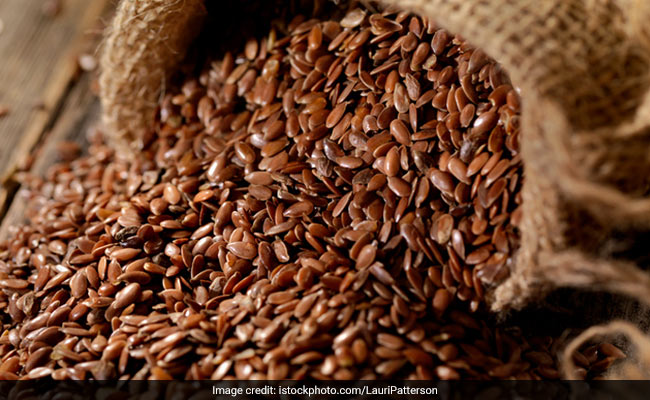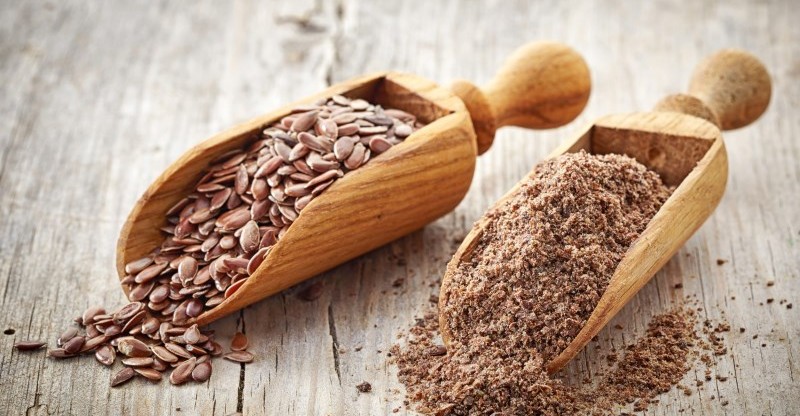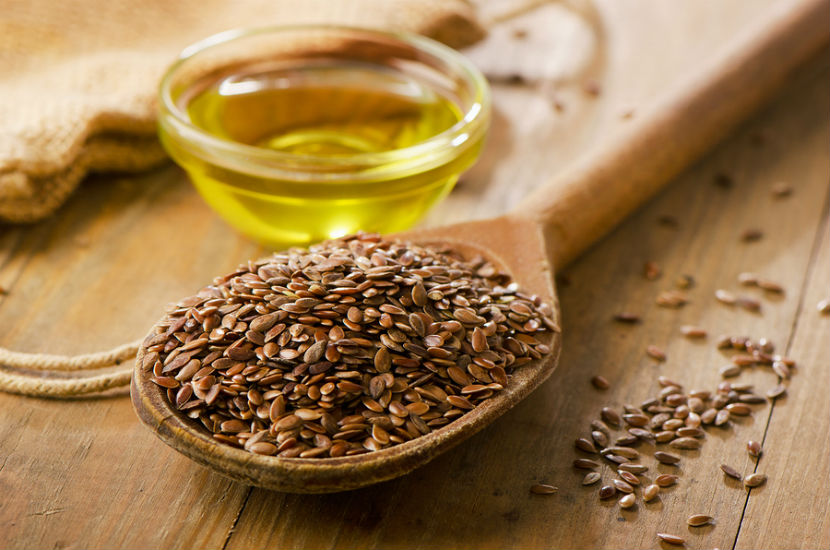INTRODUCTION:
Flax seeds may be tiny and look insignificant, but these seeds have a powerful impact on your health. Have you ever stirred at a package of granola or a recipe online that calls for flax seed and thought, what it was… well, While chia seeds are a bit more popularly seed used in recipes like overnight oats or even pudding, flax seeds are the underdog ingredient that you should start paying close attention to, especially when you know about all the incredible benefits of consuming them.
RELATED ARTICLES:
– Lupus: Causes, Effects And Prevention Methods
– Adele Roberts bowel cancer| See 5 celebrities with chronic illnesse
– Your v*gina health: 8 tips to keep your v*gina healthy
Let’s look at some of the ways adding flax seeds to recipes can be of long-term health benefits and a few warnings to consider when you start.
EIGHT LONG TERM BENEFITS OF FLAX SEED:
1 Flax seeds are so rich in fiber content.

Are you looking for a way to add more fiber content to your diet? Adding flax seeds to your meal can be a great way to start. One tablespoon of this ground flax seed contains about 3g of fiber, which equates to 11% of the recommended daily value of fiber intake your body requires in a day.
According to the American Heart Association, getting an average of 25 to 30 grams of fiber daily, a diet low in fiber, impacts your weight management efforts. It can cause digestion issues and even increase your risk of chronic diseases.
Eating food containing flax seeds for breakfast is a great way to start the day. You can mix in flax seeds with oatmeal, add them to your granola for a yogurt parfait, blend them into your smoothie or even mix it into a pancake batter.
2 Flax seeds are a rich source of omega-3 fatty acids.

Specifically, flax seeds contain enough alpha-linolenic acid (ALA), a type of essential fatty acid that your body cannot produce. The only way to obtain it is through food, and flax seeds are the right food to eat to get them.
Consuming omega-3 fatty acids has been proven to reduce inflammation in the body, which can help prevent chronic diseases. In particular, ALA has been linked to decreasing the risk of heart diseases like heart attack and stroke and reducing high blood pressure.
3 Flax seeds can be of benefit to your overall heart health.

As we have learned above, ALA can help decrease the chances of having any heart disease. A study review in Advances of Nutrition shows strong evidence of ALA consumption and the reduced risk of cardiovascular disease.
This is because ALA is a polyunsaturated fatty acid (PUFA), which has anti-inflammatory effects on the body and has been proven to decrease the risk of heart disease by far. According to Advances in Food and Nutrition Research, they also have powerful anticancer, antihypertensive, antioxidant, antidepression, antiaging, and anti-arthritis effects.
Studies as also shown that flax seed consumption can help lower your blood cholesterol levels. A high level of LDL is “bad” cholesterol in your system can cause a buildup in your arteries and increase your risk of cardiovascular disease. Flax seeds can also effectively lower your blood pressure, essential for preventing heart attack and stroke.
4 Flax seeds can assist with digestion.

Flax seeds are popularly known to be a natural laxative, which means flax seed helps with the digestion process and prevents constipation. A 12-week study published in Nutrition & Metabolism found flax seed (when added to baked foods) could decrease constipation symptoms, as well as glycemic and lipid levels, for those with type 2 diabetes.
Flax seed consumption has also been shown to positively alter the gut microbiome during digestion by increasing the bacterial flora in your gut. According to Nutrients, it also reduces the presence of Proteobacteria and Porphyromonadaceae, which have been linked to alcoholic liver disease.
keeping a healthy weight is essential for keeping your body fit for the long term, so adding flax seeds into your diet can be a crucial way to keep your weight at a healthy number. In particular, the fiber in the flax seeds can help feel full for a long periods.
Flax seed supplementation has also been linked to glucose control and insulin sensitivity, which have both been proven to impact weight management.
6 Flax seeds may reduce the absorption of some minerals.

Although this doesn’t or may not look like a positive benefit of flax seed, it’s something to discuss and keep in mind if you suffer from an iron or zinc deficiency. Flax seeds contain many phytic acids; phytic acid is a type of antinutrient that can reduce the absorption of minerals like calcium, zinc, magnesium, copper, and iron.
While this can seem like a negative side effect of consuming flax seeds, their results are so minuscule that they are even less threatening than soybean and canola seeds, according to the Journal of Food Science and Technology.
7 Flax seeds could cause digestive problems.

While fiber is beneficial for overall digestive health, having too much fiber can cause digestive problems, especially if you aren’t used to eating a lot of fiber in one sitting. Overeating fiber at once can cause bloating, gas, stomach pain, and sometimes even nausea.
If you’re looking to add more fiber to your diet, increase your number gently to avoid any digestion discomfort. Adding flax seeds to your baked goods or other everyday breakfast items is a great and tasty place to start.
8. Flax seed Prevents Cardiovascular Disease

Research suggests that plant omega-3s help the cardiovascular system through several different mechanisms, including anti-inflammatory action and normalizing the heartbeat. Fitzpatrick says new research also suggests significant blood-pressure-lowering effects of flaxseed. Those effects may be due to the omega-3 fatty acids and amino acid groups found in flaxseed.
Several studies have suggested that diets rich in flaxseed omega-3s help prevent the hardening of the arteries and keep plaque from being deposited in the arteries partly by keeping white blood cells from sticking to the blood vessels’ inner linings. “Lignans in flaxseed have been shown to reduce atherosclerotic plaque buildup by up to 75%,” Fitzpatrick says.
Because plant omega-3s may also play a role in maintaining the heart’s natural rhythm, they may be helpful in treating arrhythmia (irregular heartbeat) and heart failure. More research is needed on this.
CONCLUSSIONS:
flax seeds are packed with a lot of nutritious and health benefits, thanks to their ability to reduce blood pressure, improve digestion, and prevent certain types of cancer. They’re also quite versatile, as they can be incorporated into both sweet, savory, hot, and cold dishes. Whether you should consume flax seeds and how often should be based on your own personal preferences and individual health needs. For tailored advice, talk to your nutritionist or dietitian for tailored guidance.
You can also like to read our recent article, Plant Base Meal; The Best Diet To Lower Breast Cancer Risk



